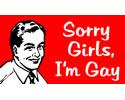Ricky Martin and what it means to be a gay pop star in 2010
The most widespread reaction to Ricky Martin coming out last week was a great big shrug. Have we stopped caring about our pop stars' sexuality?
Ricky Martin . . . is the pressure easing on gay performers? Photograph: THAIS LLORCA/EPA
Twelve years ago, when his activities in a Californian public toilet forced George Michael to declare his sexuality to the world, the singer was widely hailed for his courage and good grace. This week, the reaction toRicky Martin's apparently unforced declaration of gayness ("I am a fortunate homosexual man") has been less effusive. On the BBC's Have Your Say forum, opinions mostly ranged from "who cares" to "we already knew", with some even suggesting that the whole episode was a publicity stunt, staged to boost flagging sales of his music.
If society has reached the stage where the coming out of a pop star provokes little more than a collective shrug, then perhaps the pressure is also easing on other openly gay performers, who now feel less burdened to act as figureheads or role models. When asked about this in 2008, Boy George told me he "never had that separatist attitude about 'gay' and 'straight'. I love being gay and I support gay culture, but I don't think of myself as being a solely gay artist."
Nevertheless, George's follow-up comments provided an unexpected sting. "Today's pop stars are out of the closet," he continued, "but they don't express anything about their sexuality. They don't ever use the word 'he' in their songs. They think they don't need to, because they think everybody loves them. They've been lulled into this false sense of security."
At this charge, a gay performer might trot out that well-worn line, "I want my songs to have a universal appeal." A cynic might retort that he was merely scared of being pigeonholed as a gay act, as that could limit his appeal. Either way, you'll search long and hard to find hit songs that unequivocally reference same-sex desire, as opposed to dropping veiled hints. Curiously, many of the former – Suede's The Drowners, Franz Ferdinand's Michael, Placebo's Nancy Boy, Katy Perry's I Kissed a Girl, tATu's All the Things She Said – are the work of artists who have sought to play games with sexual identity, rather than bona fide, down-the-line gay acts. In other words, it's the ambiguous acts who have often felt the most free to sing in unambiguous terms.
In the case of Suede, who reunited last week for a rapturously received show at the Royal Albert Hall, most of the ambiguity was supplied by singer Brett Anderson, who famously declared that he was "a bisexual man who never had a homosexual experience". His sexuality became an object of fascination, even though Suede's drummer Simon Gilbert had quietly come out early in the band's career. As with his contemporary Simon Fowler, the singer of Ocean Colour Scene, there was never any big deal about Gilbert's sexuality, perhaps because neither performer could be placed into the usual categories – arty/cerebral (Neil Tennant, Michael Stipe) or colourful/flamboyant (Jake Shears, Elton John) – that still define most gay performers. Neither Gilbert nor Fowler played with representations of sexuality: they just happened to be gay.
For isolated young gay men who might be seeking public role models, but who remain wary of identifying with anyone that carries too strong a whiff of camp, perhaps it is the gay stars of mainstream pop who have had the most to offer. Will Young, Mark Feehily of Westlife and the late Stephen Gately have all presented themselves as clean-cut boy-next-door types – and yet all remained objects of desire for their overwhelmingly female fanbases.
That has given rise to a curious phenomenon, whereby openly gay pop performers now feel free to flirt on stage with wildly appreciative female audiences, without compromising their core identities. You'll find the same thing at John Barrowman's shows, where the star can be found relating homespun anecdotes about his partner, before suggestively wiggling and thrusting his way through songs like Every Little Thing She Does Is Magic. So if you're hoping that Ricky Martin, gay pop's freshest addition to the ranks, might start reworking his old hits with a new gay twist (He Bangs, anyone?), you are best advised to prepare for disappointment.

No comments:
Post a Comment